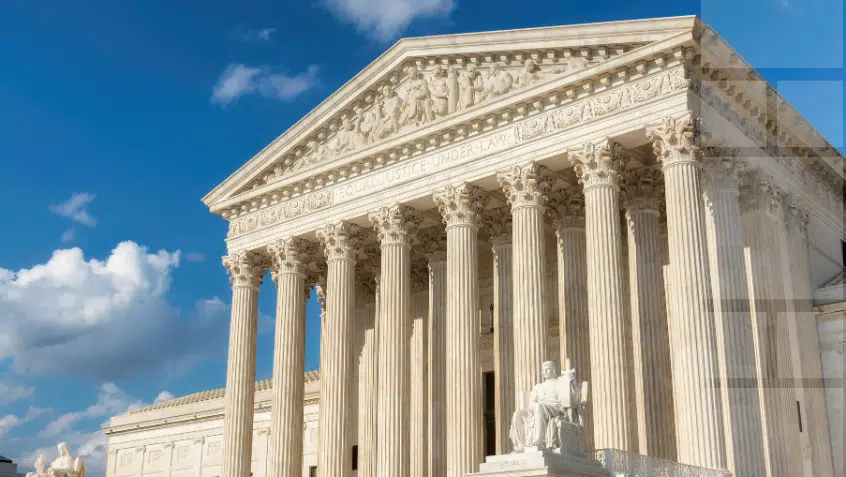Join Us Live for a Discussion on Medicare, Democracy, and the Future of Health Care
Supreme Court Preserves Affordable Care Act’s Preventive Care Infrastructure

Late last month, the Supreme Court kept the current system for designating what services should be covered as preventive services for people with Affordable Care Act (ACA) plans and other coverage. This decision, Kennedy v. Braidwood Management, preserves access to these services, including immunizations and screenings, at no cost to the person covered. Medicare Rights joined an amicus brief earlier this year in support of allowing coverage to continue uninterrupted.
Kennedy v. Braidwood Details and Ruling
Originally filed as Braidwood Management v. Becerra, the plaintiffs in this case challenged the ACA requirement that most private insurance plans cover preventive services without cost sharing. The Centers for Medicare & Medicaid Services (CMS) makes decisions about what services plans must cover, based on recommendations from the U.S. Preventive Services Task Force (USPSTF). Because the USPSTF is an expert panel of unelected officials who do not require Senate confirmation, plaintiffs said the ACA’s reliance on them violated the Appointments Clause of the U.S. Constitution and argued that USPSTF members cannot wield so much power over ACA plans. Both the Biden and the Trump administrations argued that the USPSTF does not have too much power because it is under the control of someone who is Senate-confirmed: the Secretary of the Department of Health and Human Services (HHS).
The Supreme Court found that this chain of command allows the USPSTF to continue its role.
USPSTF Retains Influence, but Its Independence May Be at Risk
While this decision does preserve ACA preventive services coverage, some of the reasoning voiced by the Trump administration and Supreme Court may lead to a decrease in USPSTF autonomy. The Court found that the HHS Secretary has the power to reject USPSTF recommendations and may also be allowed to require the USPSTF to endorse an administration’s opinion about what services should be covered.
The Court found that the HHS Secretary has the power to reject USPSTF recommendations.
These incursions would undermine the USPSTF’s ability to function free of political influence and pressure, a similar situation to what the Advisory Committee on Immunization Practices (ACIP) is currently facing. HHS Secretary Robert Kennedy Jr. dismissed the ACIP experts and replaced them with people with less expertise who largely share his viewpoints, such as his skepticism about vaccines and support for debunked claims. The ACIP’s latest recommendations show this tension.
Lawsuits have already been filed about the ACIP firings. The results of such litigation may limit or expand future power to politicize the ACIP and, potentially, the USPSTF.
Preventive Services Are Vital
At Medicare Rights, we strongly support the inclusion of scientifically valid preventive services in insurance products. The ACA’s preventive care coverage requirement has increased use of these necessary services, improved health outcomes, and reduced racial disparities in access to care. There is also clear evidence that access to affordable preventive care saves money for individuals, programs, and taxpayers.
We urge all policymakers to avoid politicizing expert panels like the USPSTF or ACIP.
While Braidwood did not directly threaten preventive services in Medicare or Medicaid, a different decision from the Supreme Court could have created massive ripple effects for preventive services throughout the health system. We are relieved that the Court chose a different path, and we urge all policymakers to avoid politicizing expert panels like the USPSTF or ACIP. Coverage decisions should rest on vetted science with the goal of bolstering and preserving the health of the entire population.
Further Reading
Read the Supreme Court decision.
Read more about the case, and the amicus curia Medicare Rights joined.
Show Comments
We welcome thoughtful, respectful discussion on our website. To maintain a safe and constructive environment, comments that include profanity or violent, threatening language will be hidden. We may ban commentors who repeatedly cross these guidelines.
Help Us Protect & Strengthen Medicare
Donate today and make a lasting impact
More than 67 million people rely on Medicare—but many still face barriers to the care they need. With your support, we provide free, unbiased help to people navigating Medicare and work across the country with federal and state advocates to protect Medicare’s future and address the needs of those it serves.
The Latest
Most Read
Add Medicare to Your Inbox
Sign up to receive Medicare news, policy developments, and other useful updates from the Medicare Rights.
View this profile on InstagramMedicare Rights Center (@medicarerights) • Instagram photos and videos









